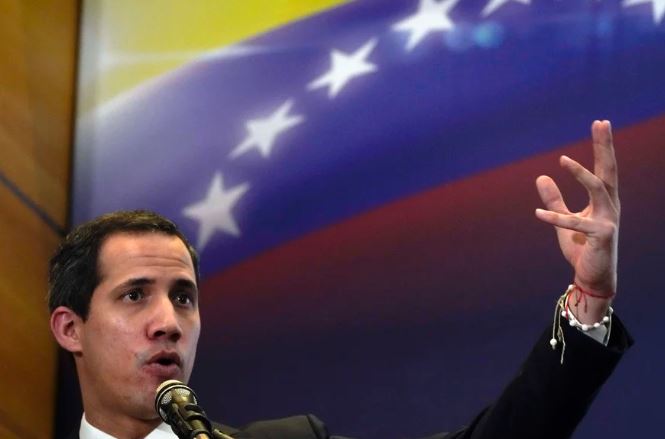The opposition leader said that eliminating this charge would mean that Maduro regains control of the resources of the Caribbean country blocked abroad by sanctions imposed on the socialist regime.
The opposition leader Juan Guaidó called this Thursday to maintain the interim government in Venezuela above any name, when the option of being replaced by another leader appears before a proposal to eliminate that figure, which is expected to come to an end tomorrow, when the anti-Chavismo will hold a session that the former deputy has tried to avoid.
Guaidó called for this Friday a debate on the future of the presidency in charge, which in principle was to be held this Thursday, but which he himself suspended for this Friday, December 30.
“My proposal is that the institutional framework be defended above names or personal interests and that this tool is not destroyed,” Guaidó said in a video posted on social networks.
Among harsh statements that show the existing fractures in the Venezuelan opposition, the Primero Justicia (PJ), Acción Democrática (AD) and Un Nuevo Tiempo (UNT) parties lead the proposal to put an end to the “interim” after four years of failed offensive to remove dictator Nicolás Maduro from power.
“You have the votes to destroy the figure of the interim presidency, not Maduro, you, but you also have the votes to maintain and appoint the people who make it up. Do what your conscience dictates,” Guaidó said, addressing the representatives of those awnings.
The discussion summons 104 members of Parliament with an opposition majority elected in 2015, whose term ended last year, but who defends its validity by denouncing the 2020 legislative elections as fraudulent, in which Chavismo regained control of the chamber.
Two votes must be carried out, with the need for a simple majority.
The first was held on Thursday of last week, when two projects were presented: one to end the presidency in charge as of January 5, which received 72 votes, and another that would extend it for another year, which had 23. There were nine abstentions.
The second would take place this Friday.
“The insistence on maintaining the presidency in charge has nothing to do with Juan Guaidó. It is a duty,” Guaidó said. The leader proclaimed himself president in charge of Venezuela in a square in January 2019 with the support of the United States and fifty countries, alleging that Maduro’s re-election in 2018 was a fraud and that he, as head of Parliament, should assume that position. .
Guaidó maintains that eliminating the interim period would risk allowing Maduro to regain control of Venezuelan resources blocked abroad by sanctions imposed on the socialist regime.
On Thursday, during a public virtual meeting, the faction chiefs of Un Nuevo Tiempo and Primero Justicia, Nora Bracho and Alfonso Marquina, asked Guaidó and the board of directors for an immediate meeting in which the official session would be called for Friday. “We are obliged to respect democratic guarantees… let’s not continue acting like those we criticize so much,” claimed former deputy Marquina, referring to Guaidó’s decision, which he called “unilateral.”
The parties that seek the end of the interim government claim that this figure failed in its purpose of achieving a democratic transition after ceasing the usurpation of power that they claim from the Venezuelan dictator.
By ending the figure of the interim government, the parties propose the creation of a commission that allows them to continue managing state assets abroad with the ad hoc boards of the Central Bank of Venezuela and the state oil company PDVSA, thus maintaining control of the refinery. Houston-based Citgo.
Former congresswoman Bracho advocated on Thursday for a “change of course” with which the assets are preserved and claimed the lack of accountability of Citgo by Guaidó: “It has been a black box, where we have no information about what is happening over there”.
Brian Nichols, Under Secretary of State for Western Hemisphere Affairs, said in a recent interview with NTN24 that they will follow the “indications” of the Venezuelan opposition after seeing what form the interim government will take.
“That figure could be modified without changing the rest, but also the existence of the interim government is not the only thing that prevents the Maduro regime from accessing resources, it is a complicated legal situation,” said Nichols.

